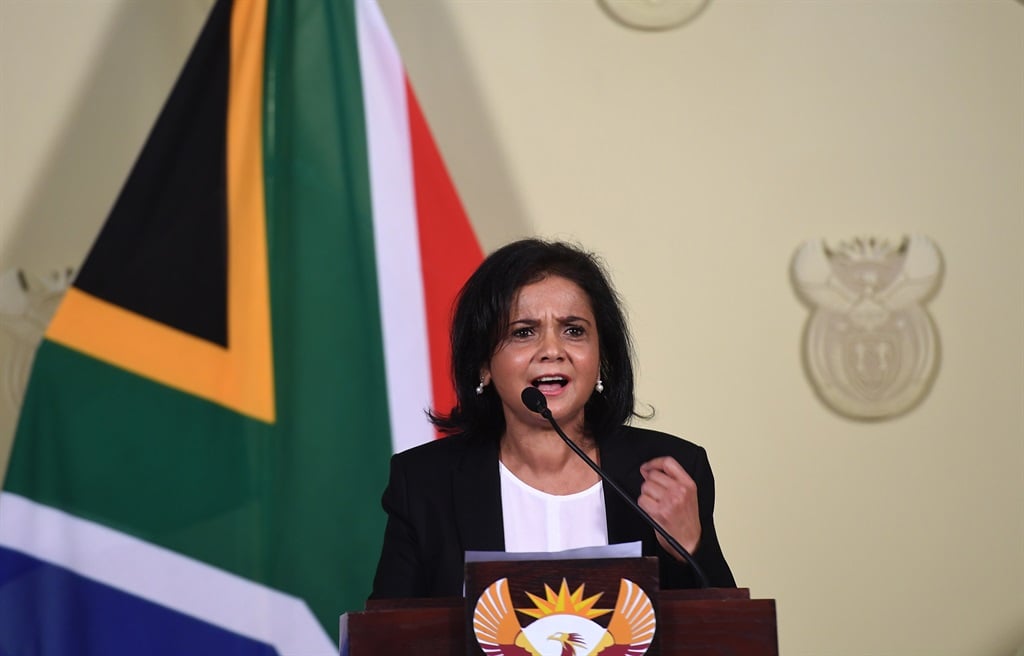
Given the NPA's track record so far, a drastic departure from the current approach appears to be necessary when dealing with prosecuting those implicated in the Zondo report, writes Jean Redpath.
Two Zondo Commission reports have been released since the beginning of the year. South Africa is in a precarious position social and political situation; indeed, the survival of our democracy is at stake. What should be the response of the National Prosecuting Authority (NPA)?
It is crucial that key players identified for prosecution by the Zondo Commission and those implicated in violent insurrection are prosecuted, convicted and sentenced to a sufficiently long sentence to rule them out of public office for the next five years (the Constitution says 12 months direct imprisonment without the option of a fine). Given the track record thus far, a drastic departure from the current approach appears to be necessary. What would amount to a drastic departure from the current approach?
First, the NPA should admit it does not have sufficient capacity.
Concerns about independence
It should accept help, particularly help in forensic accounting and any pro bono offers from experienced advocates. The response of the NPA to offers of help has thus far been that it will not accept help on actual cases as this may compromise its independence. It is difficult to see how independence is comprised in Zondo-identified cases, where the most senior judge in the land has already found that there is, in NPA parlance, a prima facie case and a clear public interest in prosecuting. The help is for building the case, not the decision to prosecute or not, which is where bias is relevant. Evidence surely speaks for itself. Indeed, the NPA’s reasoning amounts to bias in favour of those who should be prosecuted, given the NPA and Hawks evident lack of skills. Indeed, the NPA has already suffered significant reputational damage due to its inaction.
READ | Karyn Maughan: South Africa needs to empower corruption busters and here are five ways to do it
Second, the NPA should reduce its burden by delegating Special Investigating Unit (SIU) corruption referrals for prosecution, back to the SIU. Current legislation allows this; the SIU has lawyers familiar with most of these matters. The NPA has taken action in a negligible number of prosecutions referred by the SIU; the SIU can hardly do any worse than they have done. The same should apply to the Independent Policing Investigative Directorate (IPID), which refers criminal cases arising out of police misconduct to the NPA, including matters of corruption. IPID, in turn, should hire additional legal capacity to pursue such delegated prosecutions. It goes without saying that delegation must be done along clearly defined parameters.
Third, the NPA should not seek to bottle-neck matters through the Investigating Directorate, with its limited numbers. Competent, credible prosecutors in the Divisions should be brought in from wherever they are or should prosecute cases falling under their jurisdictions. All prosecutors should be compelled to declare their conflicts of interest and political affiliations before being allocated cases. Those who are or were members of political parties should be ruled out from prosecutions involving senior members of the same parties. Similarly with investigators.
Low-hanging fruit
Fourth, the NPA should target low-hanging fruit and not feel compelled to create complicated cases bringing together all matters of which a heavily implicated person is likely guilty. As others have argued, prosecute, for example, Dudu Myeni for contempt of court (for identifying a protected witness against judicial instruction). Further charges can always be brought against her at a later stage. A single such prosecution may signal serious intention on the part of the NPA, and encourage other accused to agree to plea-and-sentence agreements. Here, the NPA should seek only a sentence long enough to exclude the accused from public office. That is the priority. Matters resolved via plea-and-sentence agreement are completed far more quickly than those facing a not-guilty plea. Plea and sentence agreements may indeed be the best route given the speed of trials.
Fifth, the NPA should be far more transparent with its reasons for decisions and with progress on cases. Such transparency does not necessarily compromise cases, as is often claimed. The NPA should in addition quickly issue certificates nolle prosequi in corruption matters it does not intend to prosecute. This will open the door to private prosecutions, notwithstanding the difficulties of these cases being brought.
Without these measures, it is highly unlikely that significant cases will be completed in the near future, particularly if cases are processed in the courts in the usual way. The Judiciary could help by publishing rules for expedition of cases in Zondo-related prosecutions. The Chief Justice has the power to amend the Uniform Rules of Court; practice directions for the Regional Court could also be amended. This could include setting aside afternoon sessions for corruption matters and rules on the number and duration of postponements for corruption matters. It simply cannot remain the situation that cases affecting the very survival of our democracy are casually postponed for months at a time.
South Africa does not have time to set up an entirely new independent anti-corruption agency, although this is probably required in the long-term. In the interim, the NPA must make best use of the legislative and other resources at its disposal. This battle can still be won. South Africa cannot afford for it to be lost.
- Dr Jean Redpath is a Senior Researcher at Africa Criminal Justice Reform, a programme of the Dullah Omar Institute, University of the Western Cape.
Disclaimer: Sport24 encourages freedom of speech and the expression of diverse views. The views of columnists published on Sport24 are therefore their own and do not necessarily represent the views of Sport24




 Publications
Publications
 Partners
Partners























